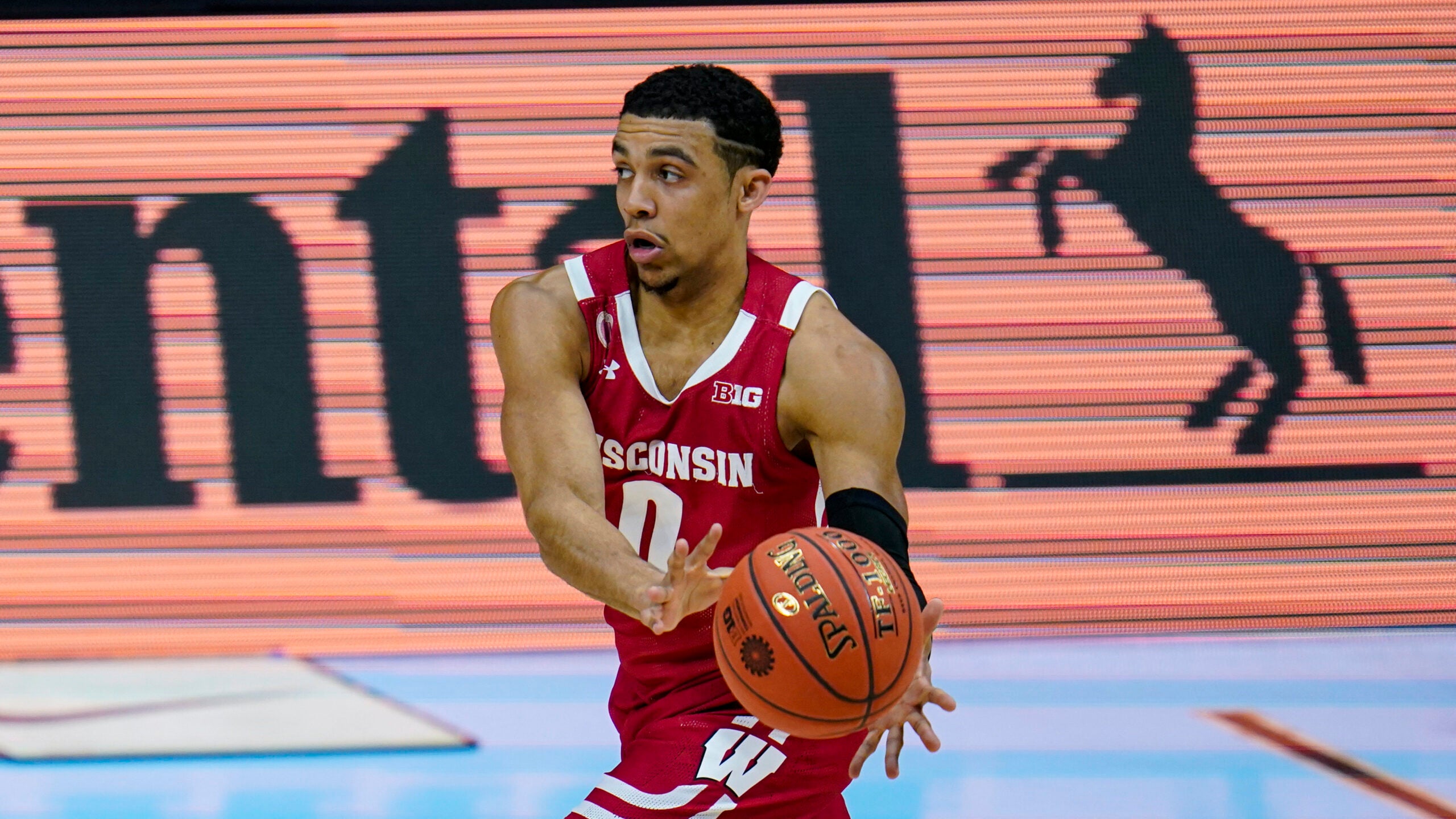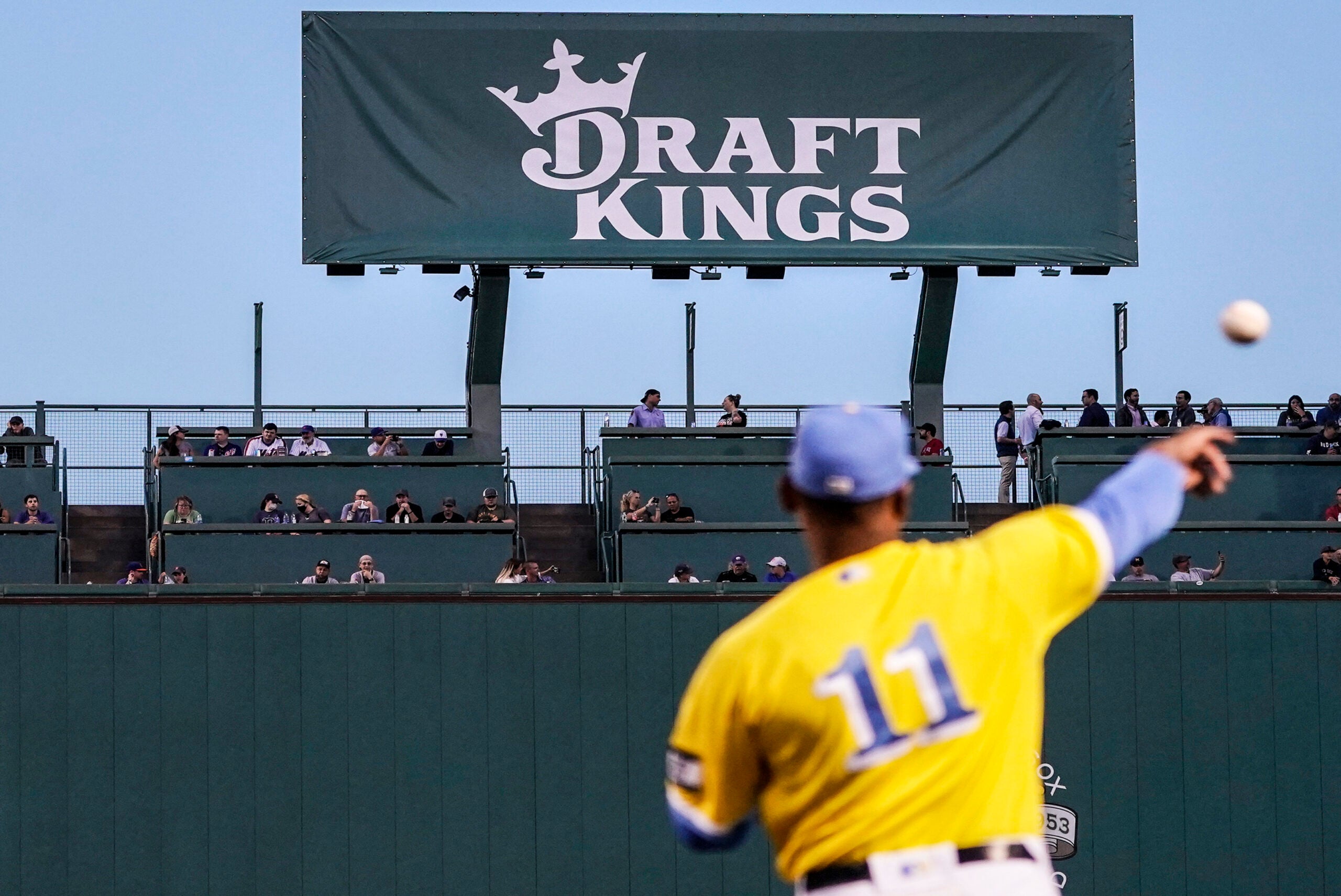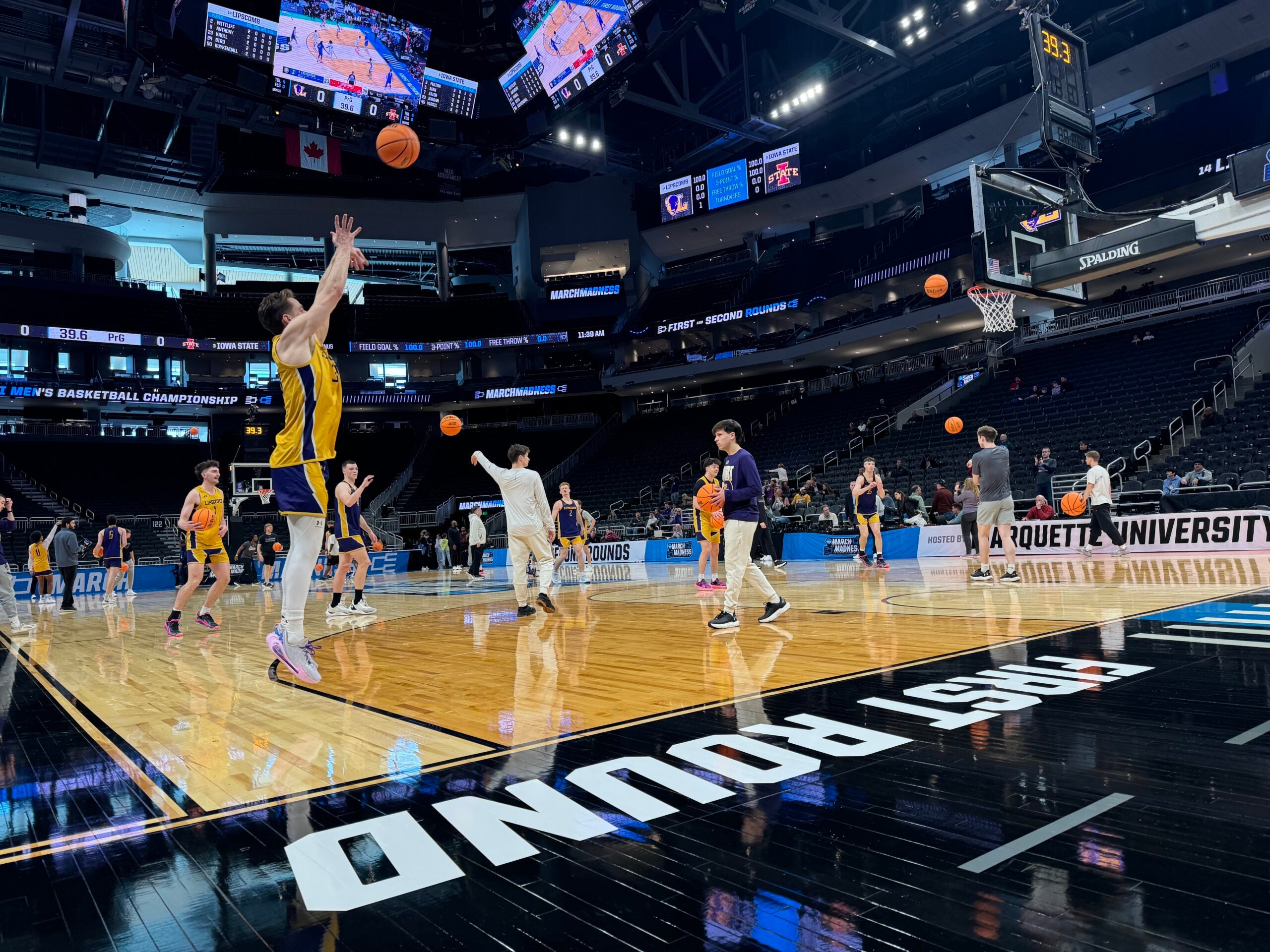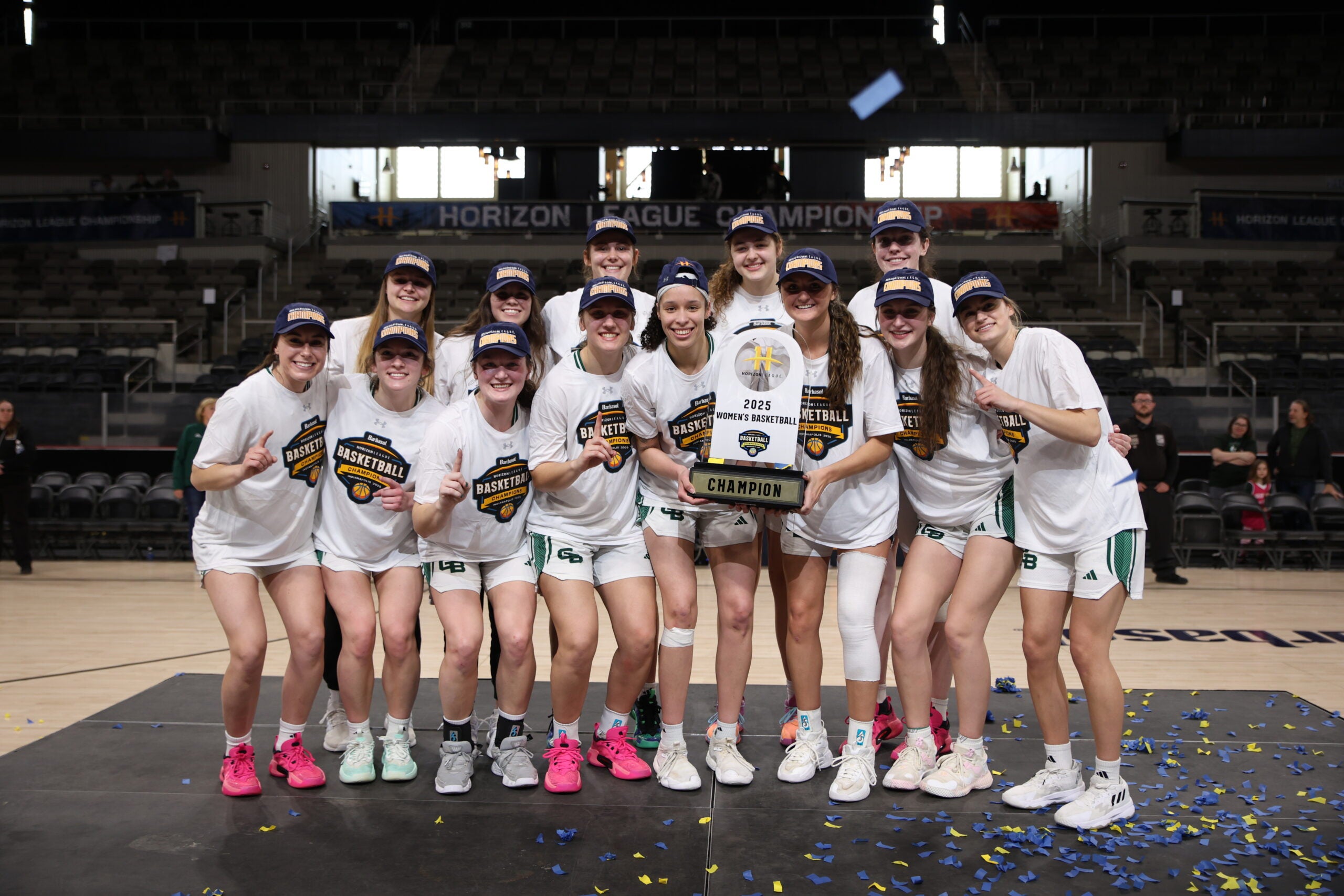Wisconsin has administered more than 2 million doses of COVID-19 vaccine, and the state’s case count has dropped in recent weeks.
As life slowly embarks on its return to normal, Wisconsin is preparing for a spring sports tradition it missed last year. The Wisconsin Badgers are going to the Big Dance for the 25th time. They open their NCAA Tournament run Friday against the University of North Carolina Tar Heels.
Wisconsin is a nine seed, while North Carolina — a perennial favorite that’s rebuilding this season — is an eight seed. The winner of Friday’s game will face either Baylor, the top seed in the South bracket, or No. 16 seed Hartford, in the second round Sunday.
News with a little more humanity
WPR’s “Wisconsin Today” newsletter keeps you connected to the state you love without feeling overwhelmed. No paywall. No agenda. No corporate filter.
The Badgers arrived last Wednesday in Indianapolis, where the tournament is set to take place. They took COVID-19 tests Sunday and quarantined through Monday, said head coach Greg Gard.
Staying healthy is the team’s top priority, said senior guard D’Mitrik Trice. He set up a video game console in his hotel room to make quarantine easier.
“Our team has done a great job this whole year with following the rules and staying healthy and not putting us in position to be shut down for any reason,” he said.
Nine teams from the Big Ten made the tournament, more than any other conference. That likely made things tough on the selection committee when it came to finding a spot for Wisconsin, Gard said. Michigan, Illinois, Ohio State and Iowa are all No. 1 or No. 2 seeds.
“There’s 68 teams left. They’re all good. You can make a case going every which way, but I knew we wouldn’t be the eight (or) nine with Michigan or Illinois, we would not be the seven (or) 10 with Ohio State or Iowa,” he said. “It probably minimized where they could put us, and we’re just obviously excited to be playing.”
Wisconsin and North Carolina last met in the Sweet 16 in 2015. The Badgers won that matchup. Before that, the teams clashed in the Elite Eight during the 2005 tournament, with the Tar Heels earning the victory.
Trice said his teammates thought they might earn a lower seed, but it won’t affect how they compete Friday.
“You’ve just got to go out there and play and compete against whoever you’re matched up with, and we’ve got North Carolina in the first round, and I know the guys are excited, the coaches are excited, so we’re going to go in there and play them 100 percent,” he said.
THE BRACKET!#MarchMadness pic.twitter.com/6tRUVIXS4X
— NCAA March Madness (@marchmadness) March 14, 2021
The Badgers have made 21 of the last 22 NCAA Tournaments, an accomplishment just five other teams can boast. But it hasn’t been all smooth sailing for Wisconsin this season. The Badgers played an especially difficult schedule beginning in January, and they struggled against top-ranked opponents. But that adversity helps make the team stronger, Gard said.
Wisconsin won one game — against Penn State — in this year’s Big Ten basketball tournament, before losing to Iowa in the quarterfinals. The Hawkeyes have beat the Badgers three times since Feb. 18.
Despite their recent struggles, Trice said the Badgers are playing better basketball and clicking at the right time.
“Our backs against the wall. Obviously this is the last go around for our seniors, and to be in the position we’re in, we’re going to be fighting and crawling and clawing for any space that we can get,” he said. “So for 40 minutes, we’re going to go out there and play hard and play together as a unit.”
Last year, basketball served as an early indicator of just how significantly the coronavirus pandemic would impact American lives. In the NBA, the Oklahoma City Thunder and the Utah Jazz were set to play March 11, 2020. The game was called off just before tipoff, after a player from the Jazz tested positive for COVID-19.
The NBA halted its season, and other leagues followed suit.
The Big Ten canceled its men’s basketball tournament after two games last year. The Badgers were the top seed. After the Big Dance was called off, ESPN used its College Basketball Power Index to predict what might have happened. It projected Wisconsin could have won the whole thing.
“We didn’t have this opportunity last year in either the conference or on a national level, so I think there’s a greater sense of appreciation, and it makes some of these other hurdles we have to do with the protocols and the testing worth it, knowing that looking back in the rearview mirror a year ago, we were all disbursed home by this time and the season was over,” Gard said.
Wisconsin Public Radio, © Copyright 2025, Board of Regents of the University of Wisconsin System and Wisconsin Educational Communications Board.






